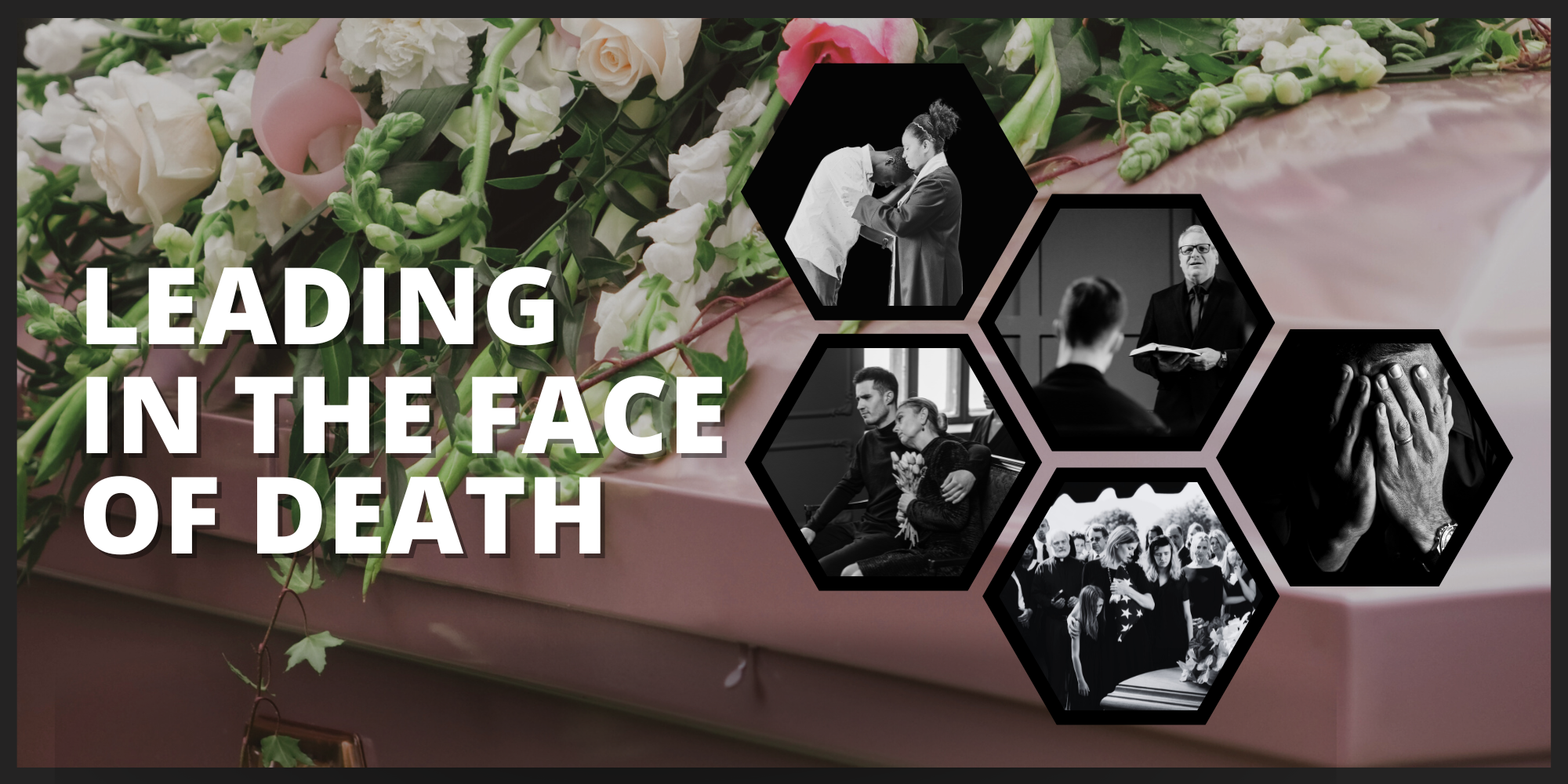The death of someone close to us changes almost all of our plans. It becomes the focus of our attention and the center of our responsibility. It rearranges our calendars: maybe a vacation gets canceled, a birthday party gets postponed, or a work presentation gets handed to someone else. If we live distant from where the funeral will be, it sets us scrambling to make travel arrangements, to find someone to keep the dog, and to check on the house while we’re away. Or, if we’re in the town where the service will be held, the death will cause us to scurry around to be sure friends and family have places to stay. There will be meetings with funeral directors, phone calls to florists, and orders placed with caterers. There will also be conversations with clergy about the service: scriptures to be read, music to be played and sung, and stories to be told (or definitely not told).
For clergy, the death of a congregant becomes an almost always unexpected and unplanned priority. It adds hours to the workweek and places extra demands on the infrastructure of the church: an additional bulletin to be printed, another meal to be prepared or hosted, parking places to be reserved, room usage to be reconfigured, audio-visual technicians to be secured, and the calendars of colleagues, as well as other participants in a funeral service, to be coordinated.
More significantly, clergy faces the challenge of being centered in their faith, honest about their own grief, and able to manage their own anxiety well enough to be present and available to the people with whom they are walking through the valley of the shadow cast by death. It isn’t easy, of course, especially when a clergy-person might already be weary from having done too much for too long or overwhelmed by pressures to “succeed” when almost everyone is confused about what “success” means for a church these days, or dealing with personal challenges about which others are unaware. Death doesn’t ask if we’re ready to respond or have time for it. Death simply demands that we deal with it.
When I work with clergy as their coach or congregations as their consultant, I have death—and the limits of which it is the starkest messenger—in mind, though I rarely mention it. I’ve been living with an incurable illness since early 2014. According to the prognosis given to me then, I should have been dead by now; but, because of progress in the treatment of Multiple Myeloma and, I’m persuaded, because of the prayerful encouragement of so many people, I’m still here. I’m diminished but grateful—dealing with pain and fatigue while enjoying family, friends, and meaningful work. Since I’m in regular treatment, part of which is taking a chemotherapy capsule each night, I’m never far away from an awareness of my death. All these things—diminishment, pain, fatigue, and looming death-won’t let me deny, at least for long, that my life, like everyone else’s, is limited. Our knowledge and wisdom, talents and gifts, and energy and capacity are limited. We can’t be for everyone who they want us to be or do for them everything they hope we will do.
When I remember the reality of death and other limitations in my work with churches and their leaders, I’m far less likely to participate in making idols of our visions, dreams, plans, and projects. No vision is flawless, no dream is complete, no plan is without gaps, and no project is without risks. If we think they’re perfect, we’ll be reluctant, even resistant, to change them when it is obvious they need to change.
Death and other limits also caution me not to expect too much (I’m rarely tempted to expect too little) of the leaders who will carry out those hopes. Those leaders can’t, over the long haul, bear the weight of our idolatrous expectations and projections that they won’t ever make mistakes, won’t ever have lapses in kindness and compassion, won’t ever have needs and hurts of their own, and won’t ever get sick and die.
To be sure, faithful and effective churches need wise, expansive, and imaginative strategic plans. Beyond question, they need spiritually-grounded, emotionally-intelligent, organizationally savvy, and missionally-motivated leaders committed to ongoing personal and professional growth. All these things matter, but they don’t matter ultimately because nothing human can sustain the burden of ultimacy.
What matters ultimately is that God’s love, grace, justice, and mercy transcend and redeem all our limits and that the resurrection of Jesus has defeated, and is defeating, death itself.
Death changes everything, except God.

How beautiful your words to our congregation were as we said good-bye to our minister and friend, Tommy Bratton, in July. Thank you, Guy, for expressing for all of us the tremendous loss we felt and the need for hope for tomorrow.